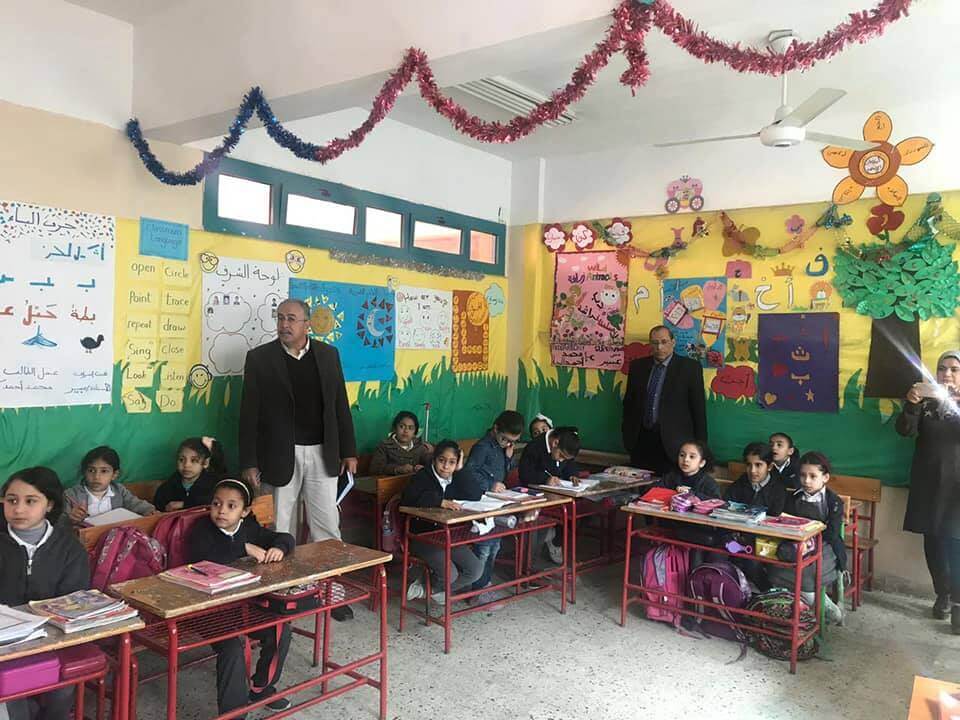Improving the state’s education system lies at the heart of Egypt Vision 2030 – Sustainable ?Development Strategy. However, bringing about a tangible transformation in the public school ?system can become extremely challenging. Issues like overpopulation and the decades-long ?degradation of the education system stand in the way of real reform. Alongside the Ministry of ?Education’s overhaul of the teaching methods and curricula of public schools, civil society ?organizations and other entities are working on developing and enhancing the system as a third ?party. ?
Among those efforts is the Education First Foundation. Launched in 2012, the foundation has ?been on a mission to bridge the attainment gap between private and public schools, helping ?students in public schools realize their full potential through interactive youth camps and ?outreach programs.?
In academic partnership with the Florida Atlantic University’s Department of Educational ?Leadership and Research Methodology, the foundation has so far offered over 380 scholarships ?to students from public schools and trained over 7,500 school staff members in its first phase. ?The 721 schools the foundation works with host about 1 million students. It has also provided ??15,000 educators with quality teacher training, in partnership with the Ministry of Education.
?
In an interview with Business Forward, secretary-general of the Education First Foundation ?Randa Kamel highlights the state of Egypt’s education sector and how the entity evaluates its ?impact.?
Is the education sector still underserved??
The education sector should be a priority in national development strategies; it represents the ?nation’s hope for a better future and livelihood. However, it is the least exposed to a real ?overhaul. For instance, the status of Egypt’s surgery rooms has evolved compared to the past; ?they have been comprehensively upgraded throughout the years. But not much has changed in ?Egyptian classrooms. ?
In my opinion, an urgent overhaul of the teaching methods is needed to bring about the desired ?change, while keeping up with the global trends of innovative teaching methods and ?progressive ideas.?
We, at the foundation, are motivated by life-changing possibilities. We work on transforming ?under-resourced students through quality education in public schools, ensuring strong ?workforce in the future. Through our extracurricular endeavors and different outreach ?programs and youth camps, we add academic value to students enrolled in these schools.?
How do you evaluate and measure your impact??
First, I would like to say that we are not concerned with decreasing the number of students in the ?classrooms or upgrading educational facilities. We are working on strengthening students’ educational ?abilities, beyond the conventional schooling system.?
At the student level, we assess our success through constantly connecting with the students ?graduating from our training programs, in order to assess the impact of our work.?
To demonstrate our successful work, three of our scholarship winners were later awarded an ?opportunity to study a semester abroad in one of the high-ranking schools in US.?
At the school level, we routinely make site visits to schools, whose managers or teachers were ?previously part of our training programs to help us evaluate the impact of our training programs on ?their day-to-day jobs . We also carry out regular competitions to reward the highest-performing ?teachers, while encouraging others to follow in their footsteps.?
We have also noticed how former participants of our program are transferring their gained knowledge ?to their colleagues; thus, maximizing our on-ground impact.?
What were the foundation’s major milestones??
Last year, we had an agreement with the Ministry of Education to provide around 15,000 ?educators with quality teacher training. Recently, we set up youth camps to support students ?talented in music, arts, science and technology, providing them with mentors in the discipline of ?their choice.?
For example, some of our distinguished graduates were admitted into an internship at the ?Egyptian National Theatre, while their tech-savvy peers got an internship at BMW. ?
This year, we are planning to train public school principals, supervisors and kindergarten ?teachers on leadership skills . ?









